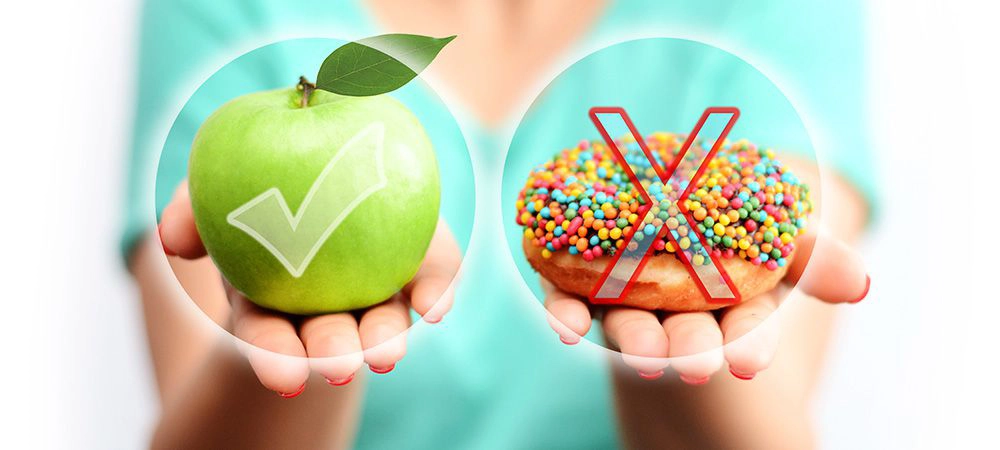How to Overcome Food Addiction?
Any kind of addiction has the potential to be devastating to a person’s physical, mental, and social well-being. But food addiction has a unique complexity: the subject of addiction is an essential element of life. With the right addiction treatment and support, you can give up gambling, alcohol, or cocaine. Even if you are addicted to something you started out needing, such as prescription pain medication, your medical team can help you find a safe, effective alternative.
But there is no alternative to food. There is no safe way to give up eating. This complicates addiction treatment efforts that, for addictions to other things, are based partly on abstinence. So how do you deal with an addiction to food in a way that enables you to eat food?
In this article, we will go over five practical things you can do.
#1 Find Out What Kind Of Eating Is Right For You
Healthy eating does not look the same from one person to the next. Some people thrive on high-carbohydrate eating plans, while others do better with protein. Some people “graze” several times throughout the day, some follow an intermittent fasting schedule, and some stick to the traditional three meals a day.
There is no singular “right” answer when it comes to healthy eating, so it is important that you figure out what is best for you. The factors that impact this include your levels of the essential nutrients as determined by blood testing, your activity level, your lifestyle, food allergies and intolerances, medical conditions and medications, and religious restrictions on food.
By gaining an understanding of what constitutes healthy eating for you, you can have a better sense of what groceries you should be stocking up on. If the particular foods that fuel your food addiction are not easily available to you, you are less likely to fall into the addictive patterns that you are trying to break.
Some things to bear in mind when you are planning your meals include the following:
- Your eating plan should be sustainable. If it is too regimented or over-restrictive, you may have trouble sticking to it.
- Try to incorporate nutritional balance in every meal.
- Include a variety of foods to ensure that your meals are interesting and fun.
- Include a variety of textures and colours – again, to make your meals fun and avoid food boredom.
- Make your meals visually appealing. Many professional chefs say that we eat first with our eyes: presentation can go a long way toward making your meals enjoyable.
#2 Find Healthy Ways To Boost Your Dopamine Levels
Human beings are motivated by reward. If we engage in a behaviour that generates some kind of reward, we are more likely to repeat that behaviour. A lot of times, the reward comes in the form of dopamine, a “feel-good” chemical that is released by the brain.
Addiction happens because the substance or behaviour that you are addicted to triggers a rush of dopamine. The dopamine makes you feel happy, calm, or confident, and when that feeling wears off, you try to get it back by using the addictive substance or engaging in the addictive behaviour.
Dopamine is not a bad thing – on the contrary, frequent boosts of dopamine are essential to our experience as humans. But there are healthy ways of accomplishing that.
Try some of these ways of boosting your dopamine levels, so you do not have to do so through food:
- Get regular exercise. You may need to talk to your doctor about which forms of exercise would be safe and effective for you.
- Make sure you get enough sleep to ensure that your dopamine receptors work efficiently.
- Listening to music can quickly elevate your dopamine when you are feeling low.
- High-protein foods like chicken and fish can raise your levels of tyrosine, which is associated with dopamine production.
- Calming activities like yoga and meditation can lead to better regulation of dopamine.
#3 Determine The Underlying Causes Of Your Food Addiction

Addiction is a curious thing: it is simultaneously a debilitating condition and a symptom of a debilitating condition. Food addictions do not arise out of nowhere. They stem from something else that is going on in the person’s life. This could be trauma, abuse, an underlying medical condition or the treatment thereof, a mental illness such as depression, body dysmorphic disorder, or any number of other things.
It is not enough to stop addictive eating: you also need to explore what the underlying cause might be. That gives you a much better chance of long-term recovery. It is the equivalent of taking Tylenol every day to get rid of headaches or finding out what is causing those headaches so you can make them stop.
Food addiction treatment programs are designed to help you with this kind of discovery. As you figure out what the root causes of your food addiction are, you can learn the strategies you need to deal with those issues in a healthier way.
#4 Avoid Large Blocks Of Empty Time
One of the most terrifying things for a person with an addiction is unfilled time, and food addiction is no exception to this. If you have long stretches of unoccupied time, you may start to dwell on stress and negativity, and that can drive you back to the addictive behaviour. In addition, most people tend to eat when they are bored. You can combat this by ensuring that your days are filled with productive and fulfilling activities. This could mean working or studying, going for hikes, pursuing a hobby or interest, or spending time with loved ones.
It is important to incorporate some downtime in your schedule, but this should be used in pursuit of a relaxing activity that you enjoy, such as reading, watching a favourite TV show, or simply taking a nap.
#5 Put Together A Stress Management Plan
Stress happens to all of us. Food addiction treatment programs cannot tell you how to get rid of stress or emotional struggles. These things are part of being human. But what you can do – and what you need to do – is put together a plan that you can put into motion when the going gets tough. In your “old life” – your phase of active addiction – you dealt with stress by engaging in addictive eating habits. In the absence of that, you have to do something else.
Develop a checklist of concrete actions you can take. When stressful times arise, grab your list and follow it. Your list could include:
- Going for a walk
- Calling a loved one
- Making an appointment to see your therapist
- Going to a yoga or meditation class
- Putting on your favourite music and dancing to it
- Addressing the cause of the stress, with the support of a friend or family member
Food Addiction Treatment In Toronto
Food addiction can be difficult to overcome, partly because everyone needs food. The key lies in improving your relationship with food and developing strategies to handle all that life throws at you without turning to addictive eating. At Addiction Rehab Toronto, we will put together a customized food addiction treatment program that deals with the root causes of your addiction and helps you regain your physical and mental health. Call us today for more information.







